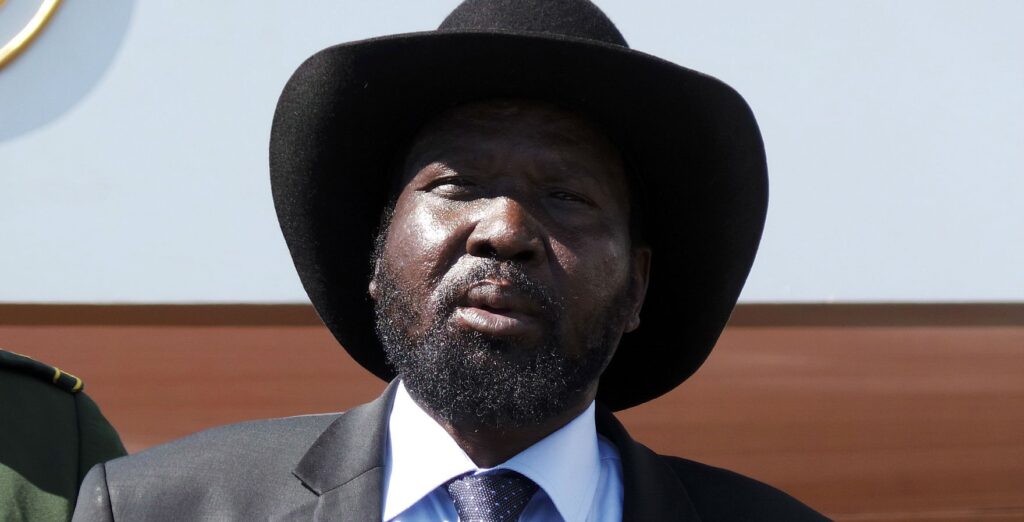South Sudan’s instability is a ticking time bomb, fueling growing discontent among citizens with the Juba regime. The 2018 peace agreement is defunct, and violence rages across the nation. South Sudanese citizens, weary of the severe economic crisis, are losing patience. Achieving regime change requires the unity of citizens. The regime weakens daily due to economic hardship and widespread violence, making change inevitable as the populace grows bolder. Success hinges on South Sudanese citizens uniting behind shared goals. Building a critical mass for change necessitates grassroots mobilization, civil society engagement, and a unified front for social justice. By acting together, we can achieve meaningful change and build a better South Sudan.
Kiir’s tribal favoritism has fractured South Sudan. His lack of national vision has fueled tribal politics, culminating in the devastating 2013 war. This Dinka nationalism threatens to unravel our social fabric, mirroring the horrors of the 2013 conflict, which began as an internal SPLM dispute before escalating into ethnic violence. The SPLM’s two decades of rule, marked by atrocities, will not go unpunished. Tribalism, a malignant force, has fueled violence and social dysfunction since 2005, jeopardizing national unity. South Sudanese must transcend tribal loyalties, embracing national citizenship to overcome this kleptocratic regime.
We must build a just, tolerant, and equitable society that celebrates our diversity—the true strength of South Sudan. Our rich cultural heritage should contribute to our nation’s growth, a giant of the Nile. This should define our republic. Rejecting tribal politics—a breeding ground for violence and a dangerous “ends justify the means” mentality—is crucial for democratic progress. South Sudan’s tragic 2013 experience highlights the dangers of elevating certain groups. Combating tribalism is essential for building a peaceful, inclusive nation, and a united citizenry is key to meaningful change.
South Sudanese citizens recognize that tribal politics and ethnic divisions severely threaten the nation’s future and unity. These divisions hinder effective opposition to the authoritarian SPLM regime, which requires a united populace to achieve meaningful change. Rejecting tribalism, exploited by SPLM elites to maintain power, is the only path forward. Since seizing power in 2005, the SPLM’s disastrous rule has included the senseless, ongoing war (2013–present), resulting in over 400,000 deaths, displacement, and extrajudicial killings of critics. Raising awareness and fostering unity among South Sudanese citizens—regardless of tribe—is crucial to building a powerful grassroots movement for positive change. For South Sudanese citizens, a strong, unified grassroots movement is the only path to freedom from the SPLM’s authoritarian rule. This movement, encompassing Equatoria, Upper Nile, and Bahr el Ghazal (EBU), will include only South Sudanese.
Foreign intervention won’t solve the problems created by the SPLM’s oligarchy since 2005; they’ve stolen over $4.5 billion in national resources intended for development and essential services. Only unified South Sudanese citizens can reject the tribal politics fostered by the SPLM elite, which has harmed the nation since 2005. A unified movement has the power to bring fundamental change, but only through collective action. It will counter disinformation campaigns and negative rhetoric on social media, particularly those fueled by the SPLM’s ongoing conflict since 2013, designed to divide the people along ethnic lines. The South Sudanese diaspora should leverage its influence to pressure Juba’s regime politically and economically. South Sudanese grassroots movements must actively challenge the SPLM’s authoritarianism by offering a clear vision for change. All South Sudanese—revolutionary and non-revolutionary—must unite to achieve radical transformation.
The SPLM leadership will be held accountable for the horrific atrocities committed during its two decades of power. President Kiir’s rule since 2005 has disregarded the rule of law. South Sudanese citizens must transcend tribal divisions and resist the corrupt SPLM elite to save their country. This requires rejecting the divisive tribal politics fueled by the SPLM’s greed. Tribalism breeds violence and a dangerous “ends justify the means” mentality, tragically exemplified in 2013. South Sudanese must actively combat tribalism to build peace.
A united citizenry is crucial for meaningful change in South Sudan. As rightful owners of their nation, South Sudanese are bound together. A better South Sudan is possible if citizens unite for change. I believe that a united citizenry can build the momentum for change in South Sudan. South Sudanese citizens, both at home and abroad, are losing patience with Kiir’s regime in Juba. No longer afraid to voice their discontent, they are increasingly paving the way for regime change. Economic hardship, unjust imprisonment of critics, and widespread violence fuel this desire. Daily life involves political repression, a lack of freedom, and threats from authorities for speaking out. The government suppresses dissent. Months of violence and insecurity, coupled with a humanitarian crisis stemming from conflict, intercommunal violence, and human rights abuses, exacerbate suffering. Ultimately, regime change in South Sudan seems inevitable, demanding strong unity among its citizens for a better future.
South Sudanese are resilient, possessing immense potential to build a democratic nation where citizens freely elect leaders who serve all. As citizens, we must unite and act for fundamental change. Achieving this requires our collective unity, pursuing a common goal of democratic reform in South Sudan. We will continue advocating for democracy, the rule of law, security sector reform, lasting peace, stability, and the dignified return of displaced people. It is our duty to liberate South Sudan from the grip of power-hungry tyrants and unite for change in our republic. May God bless South Sudan.
The writer, Jwothab Othow, is an activist and critic of the South Sudan government. He can be reached at Jwothab@yahoo.com.
The views expressed in ‘opinion’ articles published by Radio Tamazuj are solely those of the writer. The veracity of any claims made is the responsibility of the author, not Radio Tamazuj.




